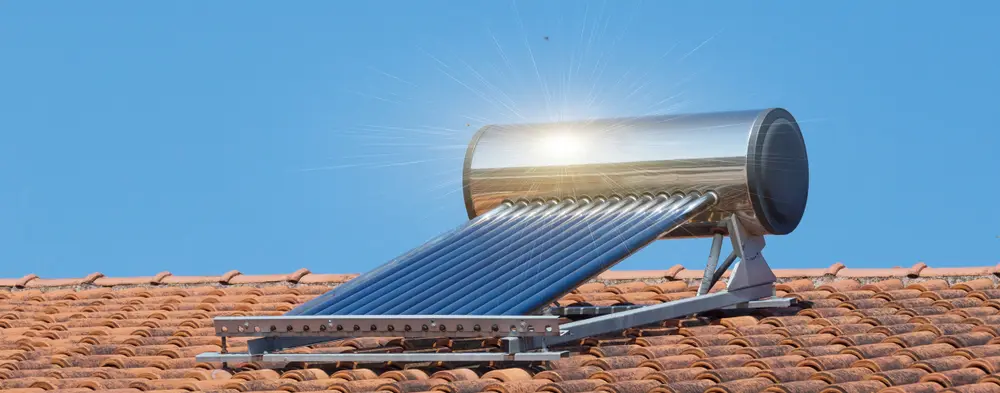SOLAR HEATER
A solar heater is a device that harnesses solar energy to heat water for various applications, such as residential hot water systems, swimming pools, or space heating. Here’s a comprehensive overview of solar heaters, including their types, benefits, components, and considerations:
Types of Solar Heaters
- Solar Water Heaters:
- Active Systems: Use pumps to circulate water or a heat-transfer fluid through collectors. They are further divided into:
- Direct Circulation Systems: Pumps water directly through the solar collectors.
- Indirect Circulation Systems: Use a heat-transfer fluid that is heated in the collectors and then transfers heat to the water in a storage tank.
- Passive Systems: Rely on natural convection to circulate water. These systems are simpler and generally more affordable.
- Active Systems: Use pumps to circulate water or a heat-transfer fluid through collectors. They are further divided into:
- Solar Pool Heaters: Specifically designed to heat swimming pool water, using a set of collectors that circulate pool water for heating.
- Solar Space Heaters: Use solar thermal collectors to provide heat for residential or commercial spaces.
Benefits
- Energy Savings: Reduces reliance on conventional energy sources, leading to lower utility bills.
- Environmentally Friendly: Utilizes renewable energy, reducing greenhouse gas emissions and fossil fuel dependency.
- Low Maintenance: Generally requires minimal maintenance, particularly passive systems.
- Versatile Applications: Suitable for various uses, including domestic hot water, swimming pools, and space heating.
Components
- Solar Collectors: Absorb sunlight and convert it into heat. Common types include:
- Flat-Plate Collectors: Use a flat, insulated box with a transparent cover to absorb solar radiation.
- Evacuated Tube Collectors: Composed of glass tubes that create a vacuum to minimize heat loss and improve efficiency.
- Storage Tank: Stores heated water for use. The size depends on the household's hot water needs.
- Pump: Circulates water or heat-transfer fluid in active systems.
- Heat Exchanger: Transfers heat from the solar collectors to the water supply in indirect systems.
- Controller: Regulates the operation of the system, optimizing performance based on temperature and demand.
Considerations
- Initial Investment: The upfront cost can be significant, but long-term savings often outweigh this.
- Space Requirements: Adequate roof or ground space is needed for solar collectors, and they should be positioned to maximize sun exposure.
- Climate Dependency: Performance can vary based on geographic location, local climate, and seasonal changes.
- Local Regulations: Check for any building codes or permits required for installation.
Conclusion
Solar heaters offer a sustainable and cost-effective way to harness solar energy for heating applications. By reducing energy consumption and lowering utility bills, they contribute to a more sustainable lifestyle. If you're considering installing a solar heater, it's important to assess your specific needs, evaluate available space, and consult with a qualified installer to determine the best system for your requirements.
